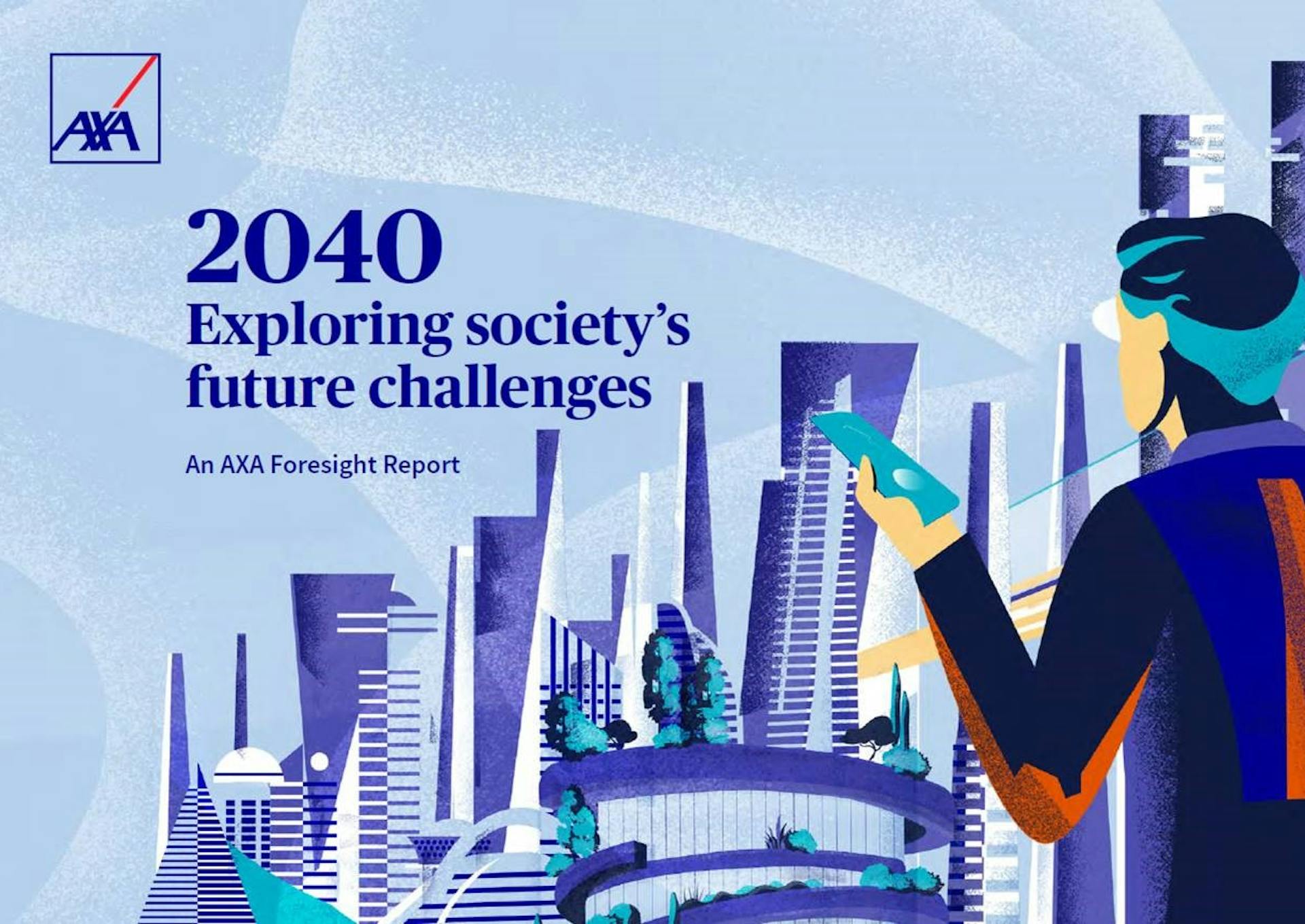
July 23, 2021
What if Healthcare Was Based on a Digital Score?
Insurance is built on future potential events. Its success is built on understanding them through the best possible vision of the future. AXA Group Foresight has conducted an analysis of possible futures
in the areas of environment, socioeconomics and healthcare. This foresight exploration aims at identifying priorities for decision-making information action today, so that — over the next twenty years — we can build a fairer, safer, and more resilient world.
possible futuresin the areas of environment, socioeconomics and healthcare. This foresight exploration aims at identifying priorities for decision-making information action today, so that — over the next twenty years — we can build a fairer, safer, and more resilient world.
3 minutes
Check out the 2021 Foresight Report
To find out more about these possible futures
and how insurers will play a key role in making the most of their risk expertise to make the world healthier.
To understand trends that will shape the healthcare landscape in 2040, the AXA Group Foresight explored three possible pathways: Tech solutionism
, tech backlash
, patient first
. These pathways draw upon key questions likely to shape human’s lives in the coming decades and impact tomorrow’s societies.
There has been immense progress in the healthcare sector since the 1970s both in terms of treatment and access, contributing to increased life expectancy. Yet, by 2050, with more than two billion people over the age of 60 ,[1] societies will face many challenges associated with aging populations and declining fertility rates, ranging from a declining labor force to an increase in chronic illnesses like cancer, heart disease and diabetes, as well as an increase in Non-Communicable Diseases (NCD). If left unaddressed, NCDs will cost the global economy an estimated $47 trillion.[2] This effect could be felt not only in high-income countries in North America, Europe and East Asia, but also in some emerging economies.[3]
Nevertheless, technology in recent years has advanced rapidly to solve many health-related issues, from genomics to an increasing use of AI, 3D bioprinting, and virtual reality.[4] Medicine has also become increasingly personalized, focusing on prevention more than treatment and taking all factors that may affect an individual’s physical and mental well-being into account. In the coming years, this trend could be reinforced through wearables and connected devices, which are becoming more common and will contribute to empower individuals to actively manage their health and adopt healthy lifestyles. Further, technological solutions focused on prevention help populations stay healthy and therefore, impose less constraints on government’s healthcare spending. Finally, the COVID-19 pandemic has demonstrated first-hand the importance of mental health as well as our reliance on the basics of healthcare: medical equipment and trained personnel. The evolution of these megatrends will largely depend on the trust individuals will place in technology, and on the role of humans in this high-tech medicine.
Based on how societies will develop around those two factors, the AXA Group Foresight Team has explored speculative design elements – fictional yet rooted in real science and data. One of the possible scenarios of healthcare in the future is the creation of a digital score, where health is measured by a numerical index as part of a larger health management system.
What if healthcare was based on a digital score? A possible vision of future health management

Inspired by the rapid development of data collection and analytics, the health management system provides individuals with a score that helps them adjust their behaviors and stay healthy. Places around the city are all connected to the system, so data can be fed into the index, creating a healthcare system based on prevention and encouraging individuals to take more active responsibility over their own health.
Families will be the most effective unit for health monitoring. Local health centers develop the health score index in partnership with tech providers and health authorities. The health index system also recommends mindfulness and mental health to be taught at schools from an early age, and workplaces to feature yoga rooms and meditation spaces.
Is a digital healthcare score system far-fetched?
In this scenario, a possible – yet not necessarily desirable – vision of the future is shown. While such system empowers people, it may also raise ethical and political issues. In order to be effective, the system would have to make sure that data is not misused for commercial purposes nor used by the government to surveil the population.
Sources
[1] World Health Organization (2018), “Ageing and Health”.
[2] World Health Organization (2020), Noncommunicable Diseases
.
[3] Nonetheless, Africa is an exception as more than half of the continent’s inhabitants will be under 25 by 2050.
[4]US National Library of Medicine (2019), Artificial Intelligence in Surgery — Promises and Peril

Check out the 2021 Foresight Report
To find out more about these “possible futures” and how insurers will play a key role in making the most of their risk expertise to make the world healthier.
ReadTags:
Data in Health


